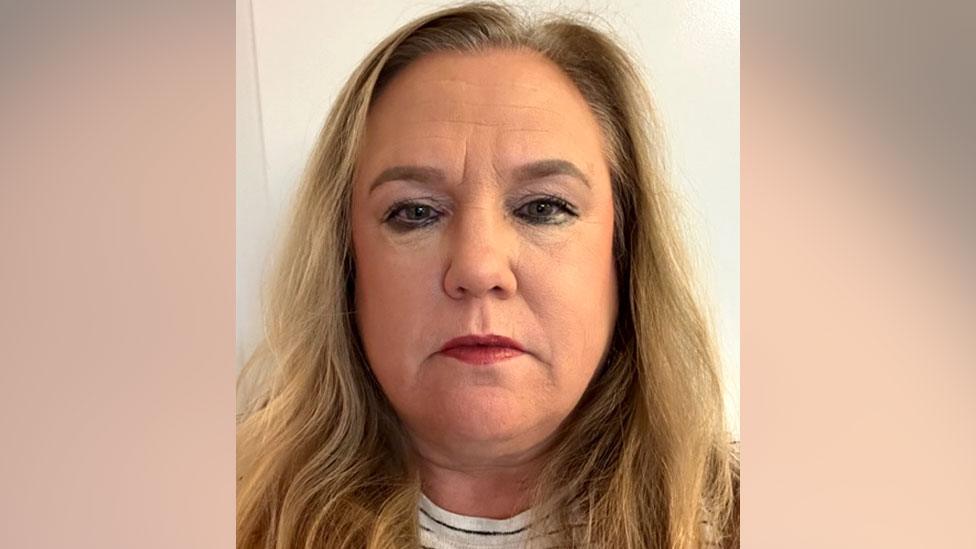Romance fraud alert as reports up almost 60%
- Published
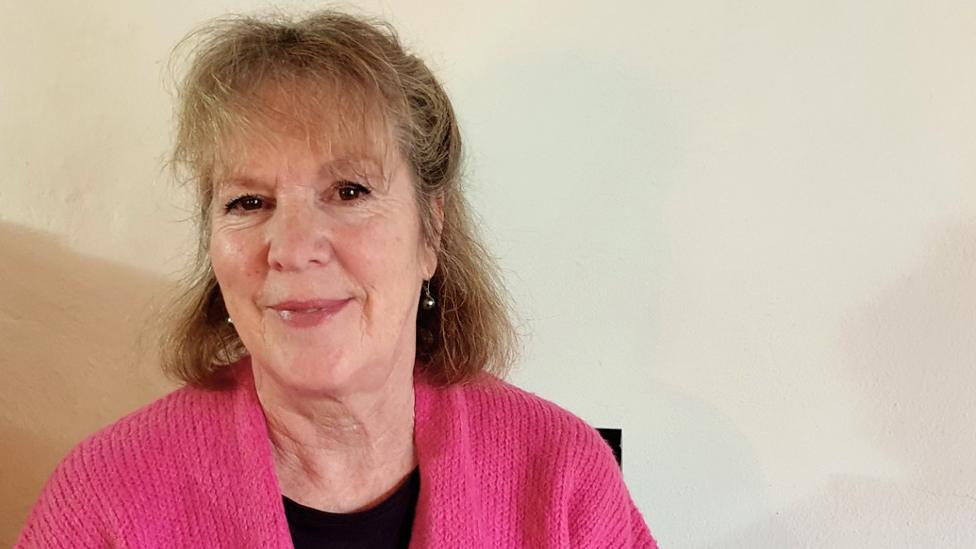
Mary Chater fell for a romance scam
A woman from Brighton has spoken of being "lured" by a scammer as figures reveal reports of romance fraud have risen by almost 60% over four years.
There were 7,660 cases processed in England and Wales by a self-reporting tool last year, up from 4,842 in 2019, data obtained by the BBC shows.
Mary Chater, who fell for a fraudster on Facebook who claimed to be a UN doctor, said: "Being called babe, baby, sweetheart, lured me right in."
The government said fraud was falling.
Ms Chater, aged 65, was contacted more than two years after the death of her husband, actor Julian Curry, who appeared in the television comedy-drama Rumpole of the Bailey.
"I was approached by someone who called himself Dani. He said he was a trauma surgeon working for the UN in Somalia," she said.
"He looked like the spitting image of a man I had a holiday romance with years ago. I liked the fact he spent his life helping others, the altruism attracted me to him."
But the scammer soon started making financial demands, claiming he was funding research into his trauma work.
Despite attempts to send money, Ms Chater's bank intervened and stopped a series of payments.
She said 'Dani' was using an image of Christian Gerhard Boving, the identity of a real family doctor in Denmark.
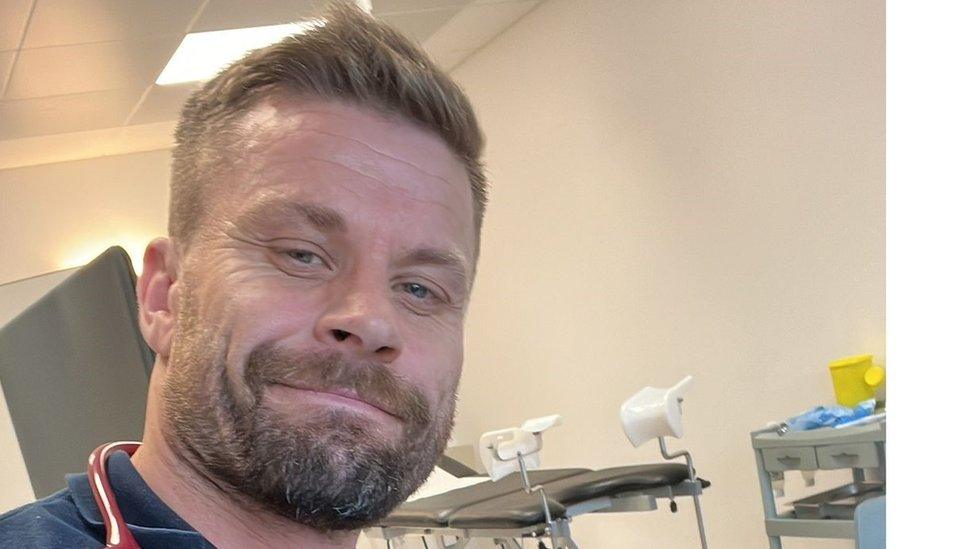
Christian Gerhard Boving says scammers have been using photos of him for years to target victims
Christian Gerhard Boving, a general practitioner, told the BBC fraudsters have used his images online for 10 years.
He said: "Suddenly all these pictures were stolen by scammers using them to hit on innocent people around the world. They are cruel, sophisticated, and evil persons doing this".
Mr Boving is calling on companies such as Meta - which owns Facebook and Instagram - to do more.
"There should be verification of every new profile being created, like you have to verify yourself with a passport or driving licence, so you know it's a real person behind the profile," he said.
Mr Boving met up with Ms Chater on a video call arranged by the BBC.
"I'm so sorry to hear about your story," he told her.
Mary Chater and Christian Gerhard Boving met up following a romance fraud
The figures on romance fraud obtained by BBC South East's Investigation Team were from Action Fraud, a national reporting centre for fraud and cybercrime which is run alongside the National Fraud Intelligence Bureau by City of London Police.
Almost £75m was reported to have been defrauded in the 7,660 romance fraud cases last year.
The oldest victim recorded since 2019 was 101.
Your device may not support this visualisation
Last year 12 of the world's biggest tech companies - including Facebook, Instagram and Match Group - signed a voluntary agreement with the government to reduce fraud on their platforms.
Measures in the Online Fraud Charter, external include a commitment enabling users of dating platforms to choose to interact only with people who have verified their identity.
The charter, the government says, is designed to drive more targeted action among a focused group of businesses.
Meta said accounts that impersonate someone else are removed when brought to their attention. It has shut down all the accounts flagged to the company by the BBC, it added.
Between July and September last year they took action on over 825 million accounts on Facebook, the company told the BBC.
Your device may not support this visualisation
Dr Elisabeth Carter, a criminologist and forensic linguist at Kingston University, warned that fraudsters often use grooming tactics to manipulate victims.
She said their language has "key similarities with coercive control and domestic abuse, such as making the victim feel responsible for the emotional and physical wellbeing of the fraudster".
Dr Carter features in a new series of the BBC podcast Love Bombed, presented by Vicky Pattison. Episodes are available to listen to on BBC Sounds from Valentine's Day.
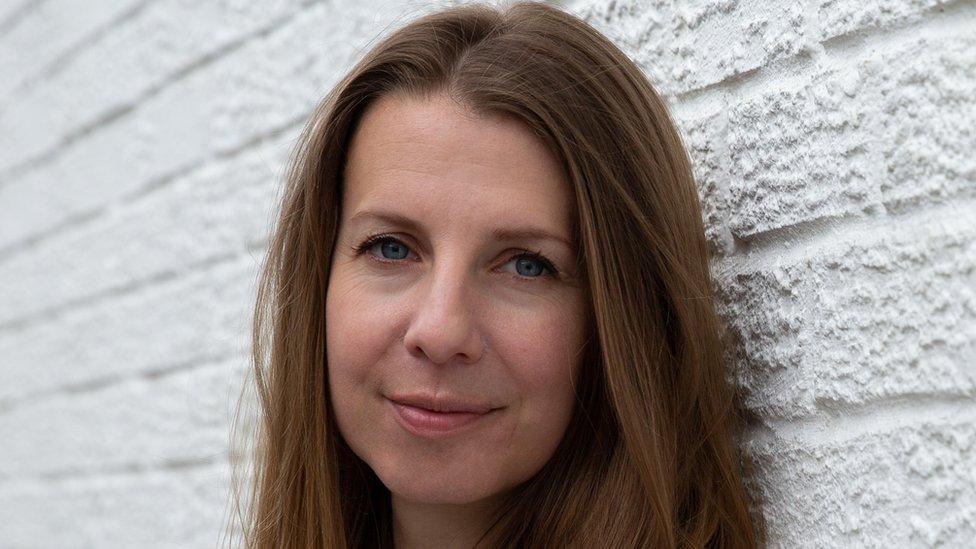
Elisabeth Carter says fraudsters look in places where people are relaxed and socialising, such as online dating sites
The charity Victim Support said there were many victims that were afraid to get help.
Senior fraud manager Lisa Mills said: "It remains an under-reported crime. In part this is because wrongly there is considerable shame and stigma around it.
"We've worked with people who have been through a life-changing ordeal and have lost thousands but are too embarrassed to report or tell friends and family."
All police force areas saw a rise in cases between 2019 and 2023. But the government said all fraud fell 13% in a year.
This week the government launched a major new advertising campaign, external to fight scammers.
Home Secretary James Cleverley said: "This new campaign is a powerful tool to add to our arsenal, which already includes a world-first agreement from tech firms to prevent online fraud and the rollout of a National Fraud Squad that has 400 expert investigators."

Follow BBC South East on Facebook, external, on X, external, and on Instagram, external. Send your story ideas to southeasttoday@bbc.co.uk, external.
Related topics
- Published24 December 2023
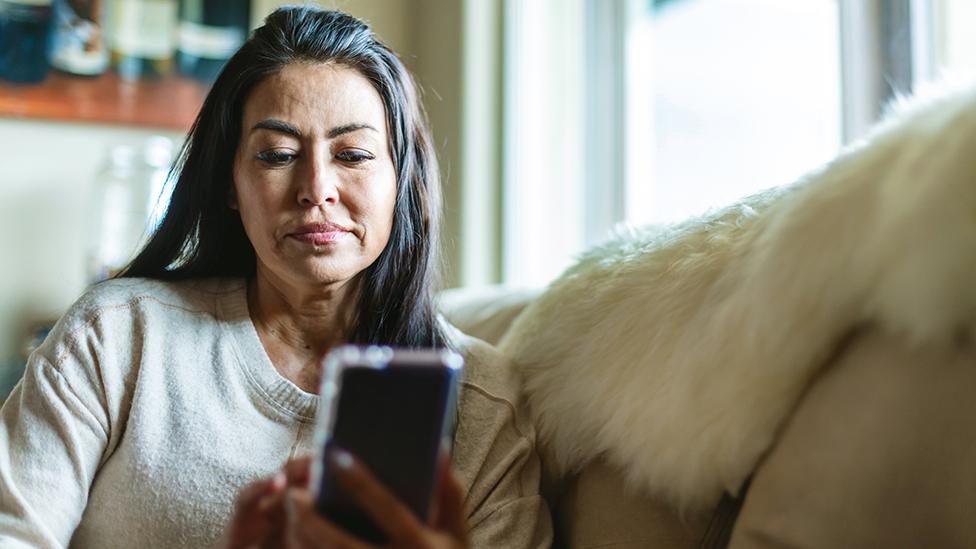
- Published30 November 2023
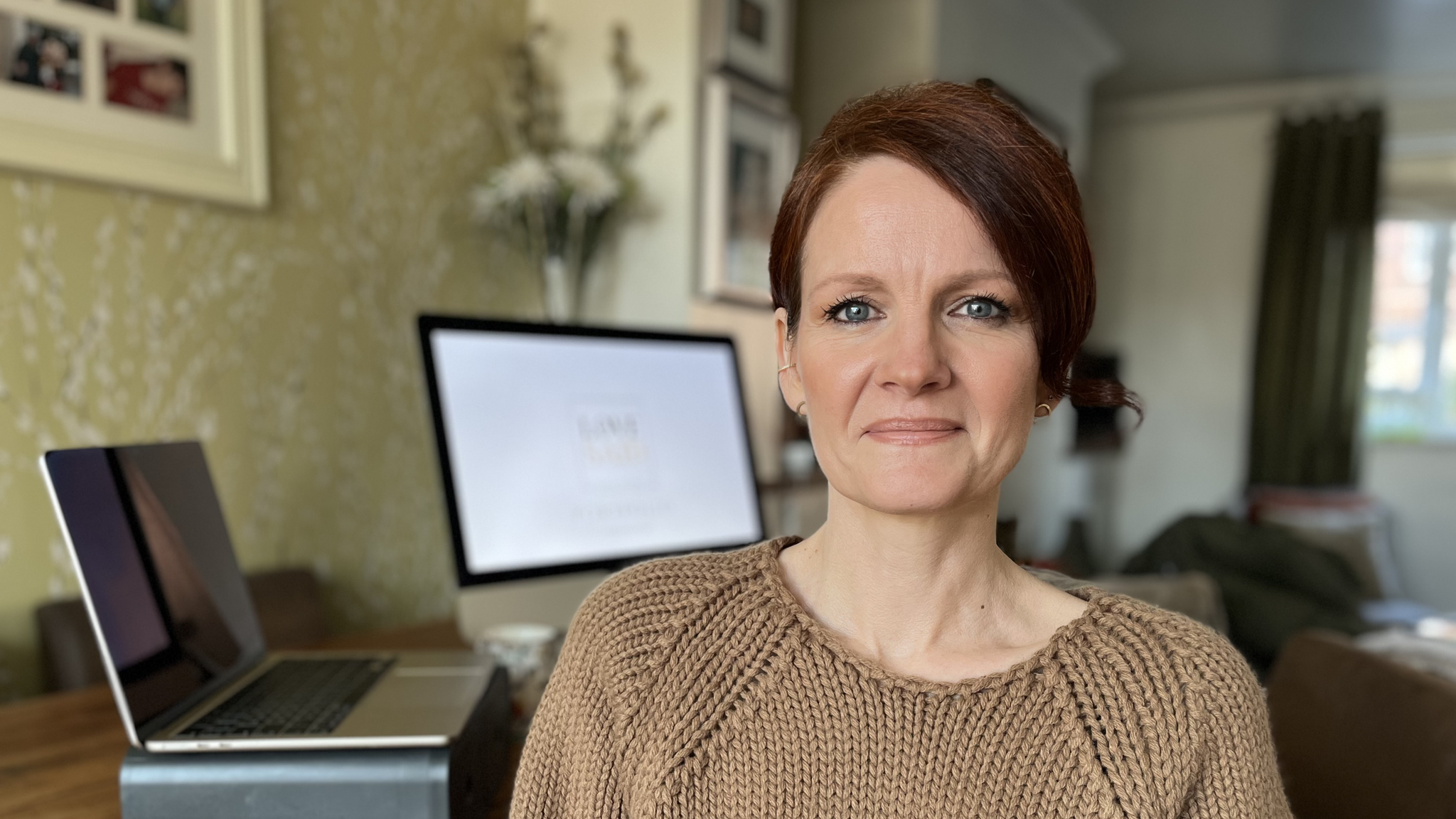
- Published16 September 2023
